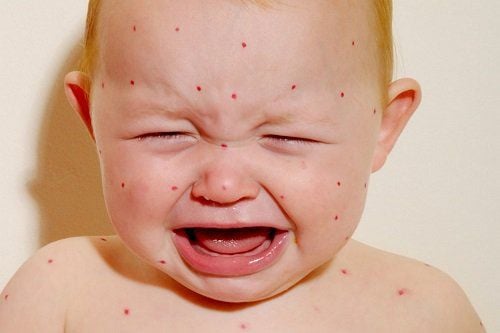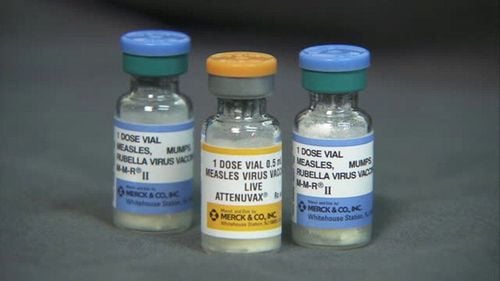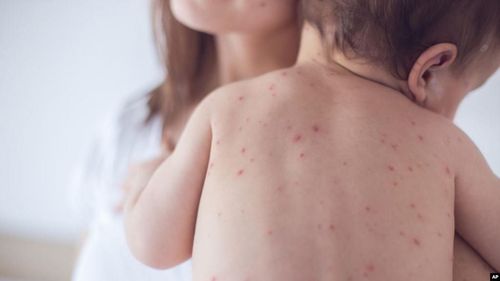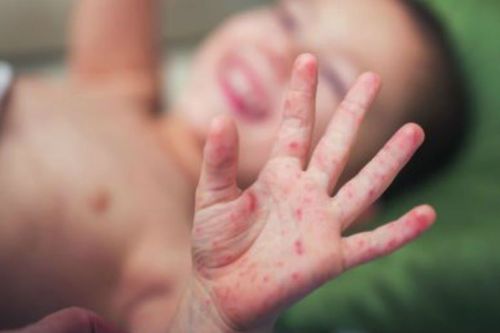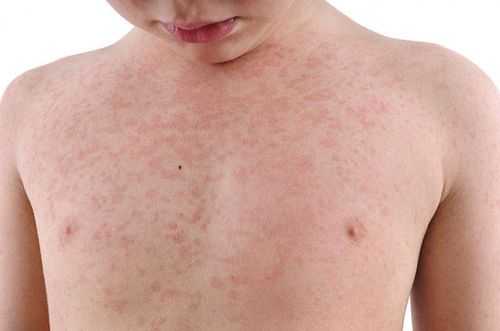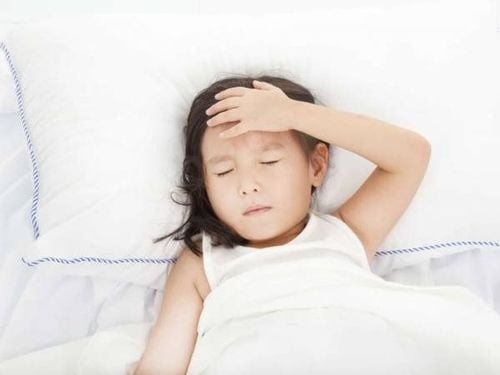This is an automatically translated article.
The article was professionally consulted with Specialist Doctor II Huynh Thi Diem Thuy - Vaccine Consultant - Pediatrics - Neonatology Department, Vinmec Central Park International General Hospital.Measles is an acute infectious disease that spreads rapidly. If the child is not treated in time, it can lead to dangerous complications such as pneumonia and malnutrition. Therefore, parents need to have the necessary knowledge to properly monitor and care for their children.
1. Four basic principles when caring for children with measles
When caring for a child with measles, parents should keep in mind the following four principles:One: Provide supportive treatment for symptoms of the disease including fever, cough, nasal congestion, red eyes and sore mouth
Two: Provide nutrition Adequate nutrition and increased breast-feeding
Three: Add vitamin A to the baby's body
Four: Watch for severe signs of measles
Fever: When a child has a fever, let him or her baby wear loose clothes. wrap a blanket over the young person. Use fever-reducing medicine in case the child has a high fever above 38.5 degrees Celsius. Feed the child more, combine with the child to drink more water. Cough: If your child has a cough but is not accompanied by rapid breathing, you can give him a cough medicine prescribed by the doctor or an herbal remedy such as lemon tea, honey that is safe for children (should consult a doctor, Do not give honey to children under 1 year old). Nasal congestion: Children should wash their nose with physiological saline to clear the nose before feeding or eating. Red eyes (conjunctivitis): Parents should wipe their baby's face with a clean, soft, damp cloth. If your baby's eyes are jealous, you should take your baby to the doctor right away. Mouth sores: Have your child gargle with clean water (preferably with salt water) as many times as possible, at least 4 times a day. Give your child water to drink often
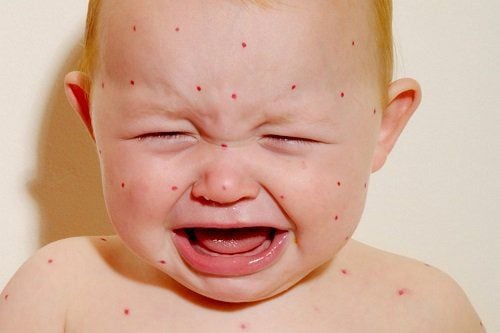
Cần theo dõi các dấu hiệu nặng của bệnh
2. Methods of caring for and monitoring sick children at home.
Isolation measures are taken as follows:Isolating sick children from healthy children. Give your child fever-reducing medicine when the fever is ≥ 38.5°C as prescribed by the doctor. Caregivers need to protect themselves by wearing masks and washing hands before and after each contact with sick children. Clean body: Shower daily, avoid cold, change clothes, clean the surrounding environment, keep the room ventilated and clean. Avoiding misconceptions such as abstaining from bathing and abstaining from wind will make the disease worse. Cut nails to avoid scratching, scratching the skin, creating conditions for the disease to spread and worsen. Instill children's eyes with 0.9% saline 3 times a day. Breastfed children still continue to breastfeed in combination with reasonable nutritional supplements (if the child is 6 months) Soft foods that are easy to digest, cooked thoroughly and when eaten should be divided into several meals and focused on taste. baby's. In case the child has diarrhea, pneumonia, zinc should be added in the diet. For children to drink fruit juice containing a lot of Vitamin A or supplement with medicine with the following dosage: Children under 6 months: Give 50,000 units/day x2 consecutive days. Children 6-12 months: Give 100,000 units/day x2 consecutive days. Children over 12 months old and adults: Give 200,000 units/day x 2 consecutive days. If the child lacks Vitamin A, the child should repeat the dose after 4-6 weeks
3. When should the child be taken to the hospital for timely examination and treatment?
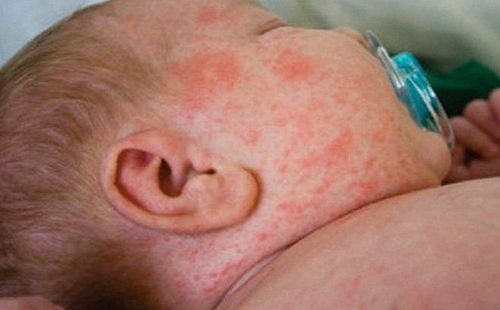
Trẻ cần được đưa đi khám ngay khi thấy biểu hiện thở nhanh
Tachypnea: The child is considered tachypnea when the breathing rate is > 50 breaths/minute for children under 1 year old and > 40 breaths/minute for children over 1 year old. Children with signs of dehydration include dry lips, crying without tears, thirst, and irritability. When crying, hear hissing, hoarse voice. Children with mouth ulcers, anorexia, diarrhea, vomiting, eye pain, ear pain, fever lasting more than 4 days. Children need to be hospitalized when they have the following symptoms:
The child cannot drink water or suckle breast milk The child has convulsions, high fever does not go down, lethargy, difficulty waking up Child has a lot of mouth sores Child has rapid breathing, chest constriction, breathing and squealing Children with signs of severe dehydration including dry lips, sagging skin, crying without tears, urinating less Children severely malnourished Children with corneal ulcers, poor vision, mastoiditis Vaccinations Measles vaccine for children as young as 9 months old is the best way to prevent measles. In case a child with measles shows unusual signs, it is necessary to take the child to a medical facility for examination and treatment. Avoid indiscriminate use of medications not as directed by your doctor.
With many years of experience in examining and treating diseases in children, now the Pediatrics Department at Vinmec International General Hospital has become one of the major health care centers, capable of examining , screening and treatment of many specialized diseases in children. Therefore, if a child shows signs of measles, parents can take the child to Vinmec International General Hospital for examination and receive support and advice from doctors and nutritionists.
Please dial HOTLINE for more information or register for an appointment HERE. Download MyVinmec app to make appointments faster and to manage your bookings easily.




